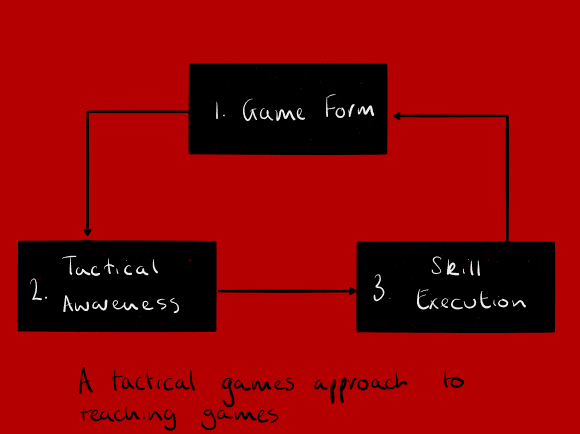A Tactical Games Approach to teaching Games
The tactical games approach aims to improve children’s understanding of the game by combining tactical awareness and skill execution. It does that by placing them in a modified game situation with a tactical problem to solve.
The rationale for a tactical games teaching in PE and school sport is threefold. First it develops interest and excitement in comparison to traditional technical focused teaching of games. Second it expands knowledge from ‘how is the technique performed’ to also include ‘what to do I the game’. Third a tactical focus may help children transfer principles of play from one game to another in the same games category.
How to implement a Tactical Games Approach
The format of the lesson is in three stages as represented in the diagram above. Provide a tactical problem through a developmentally appropriate modified game, use of questioning to develop tactical awareness and the identification of skills to practice to bring about success and then the practice of those skills before being put back into the game form.
Mitchell et al (2013) emphasise four key teaching behaviours needed to implement a tactical approach to games teaching effectively:
1. Consider the tactical problems to address and decide on the complexity of these problems
2. Practice the skills required to solve the tactical problem after the pupils have experience the game
3. Explicitly link the game form, tactical problem and skill practice through your questioning and the dialogue they generate.
4. After the practising of skills, allow time back in the game to apply them.
-
- I would add observation as a key teaching behaviour. Stand back and watch as this will provide you more information to allow you ask more informed questions.
An example from after school rugby session
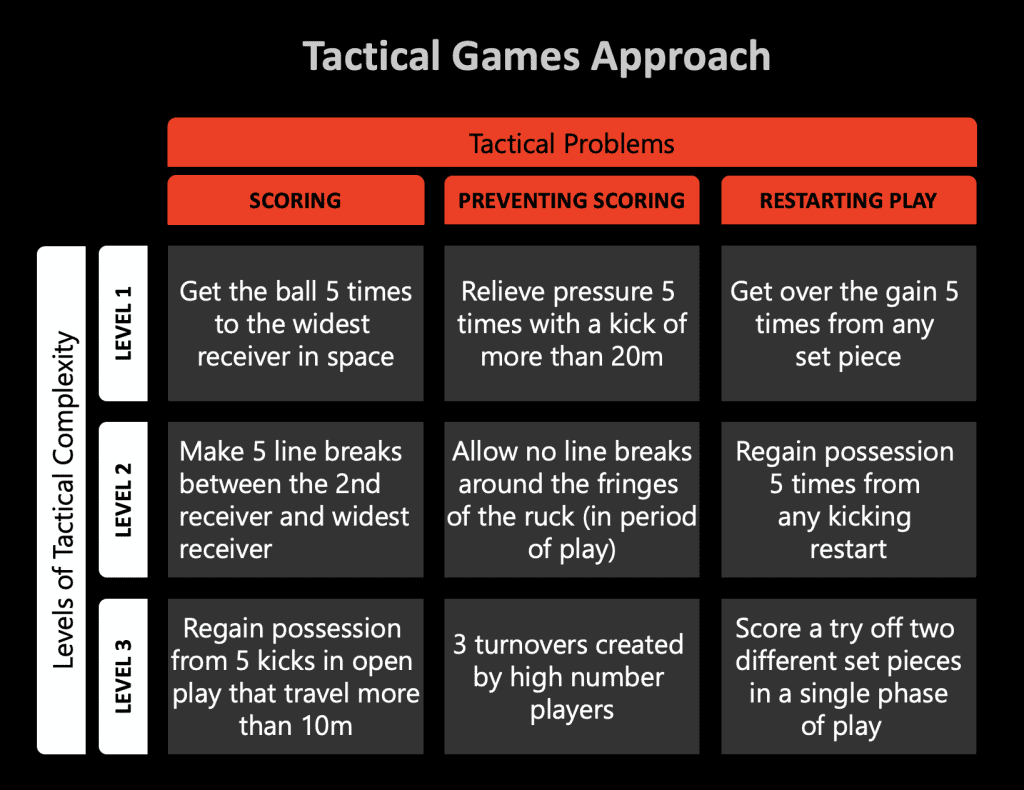
I last wrote about a tactical games approach back in October 2015, however through reading, planning, practising and reflecting it has been refine. This is an example of an U18 after school rugby session with some ideas how to further develop tactical awareness, facilitate problem solving and be flexibility with tactical complexity both for groups and individuals.
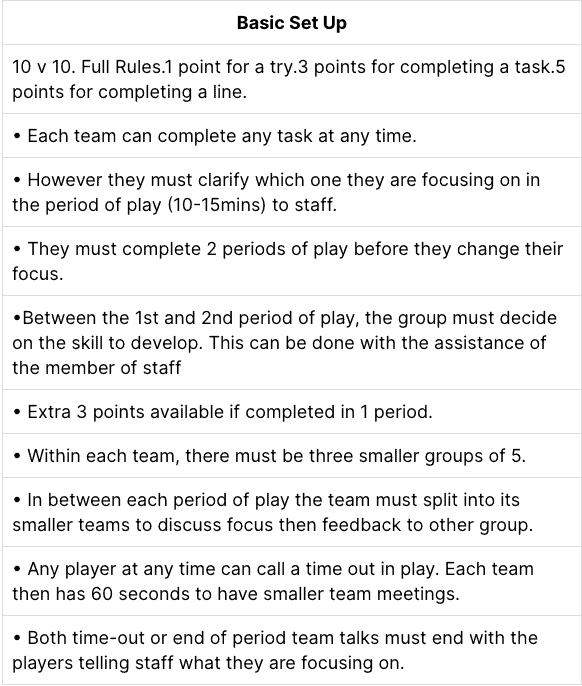
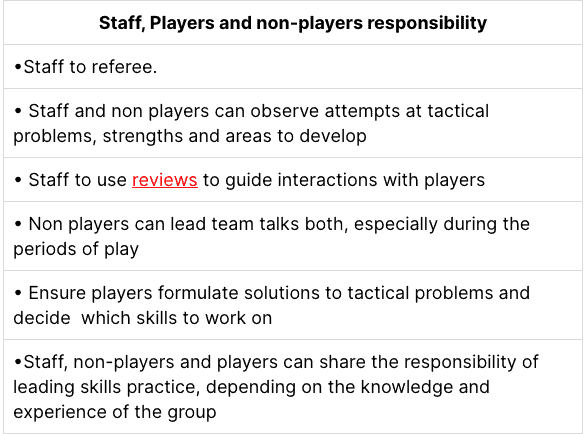
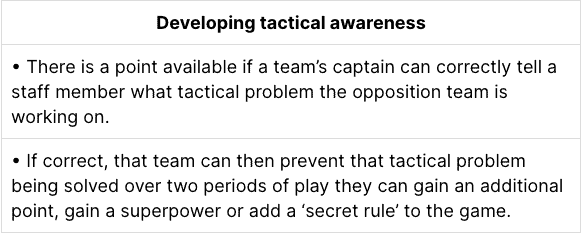
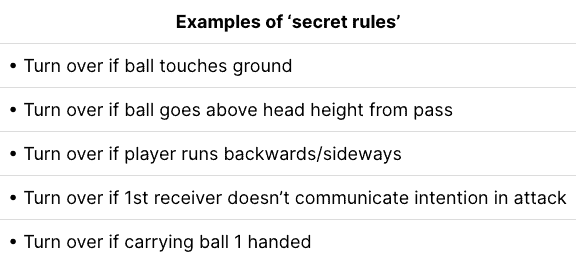
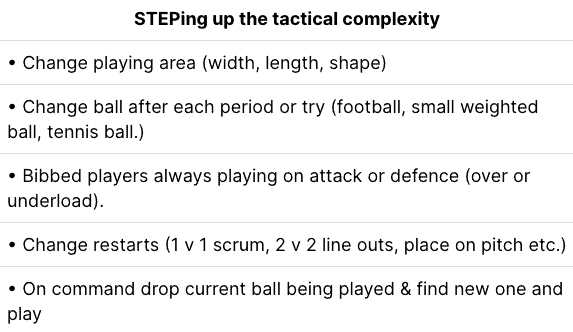
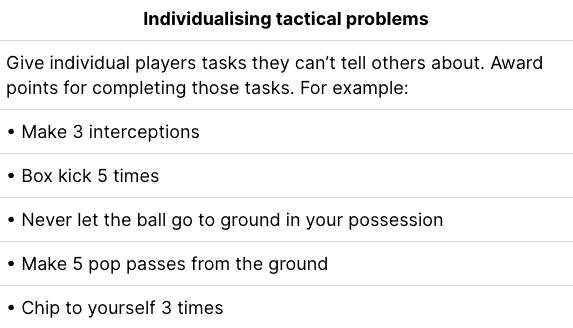
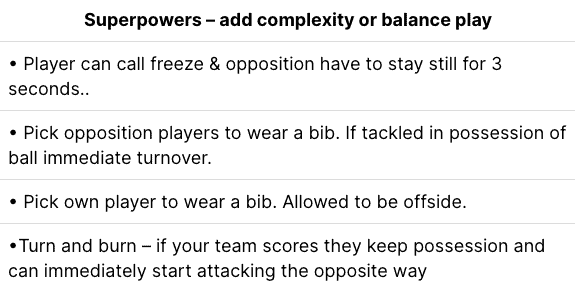
Final point – allow the players a say. Most of the ideas above (and the solutions to the problems) came from them. It’s amazing what they can come up with if you create the environment that supports them speaking up and sharing.
Mitchell, S. A., Oslin, J. L., & Griffin, L. L. (2013). Teaching sport concepts and skills: A tactical games approach for ages 7 to 18. Human Kinetics.

